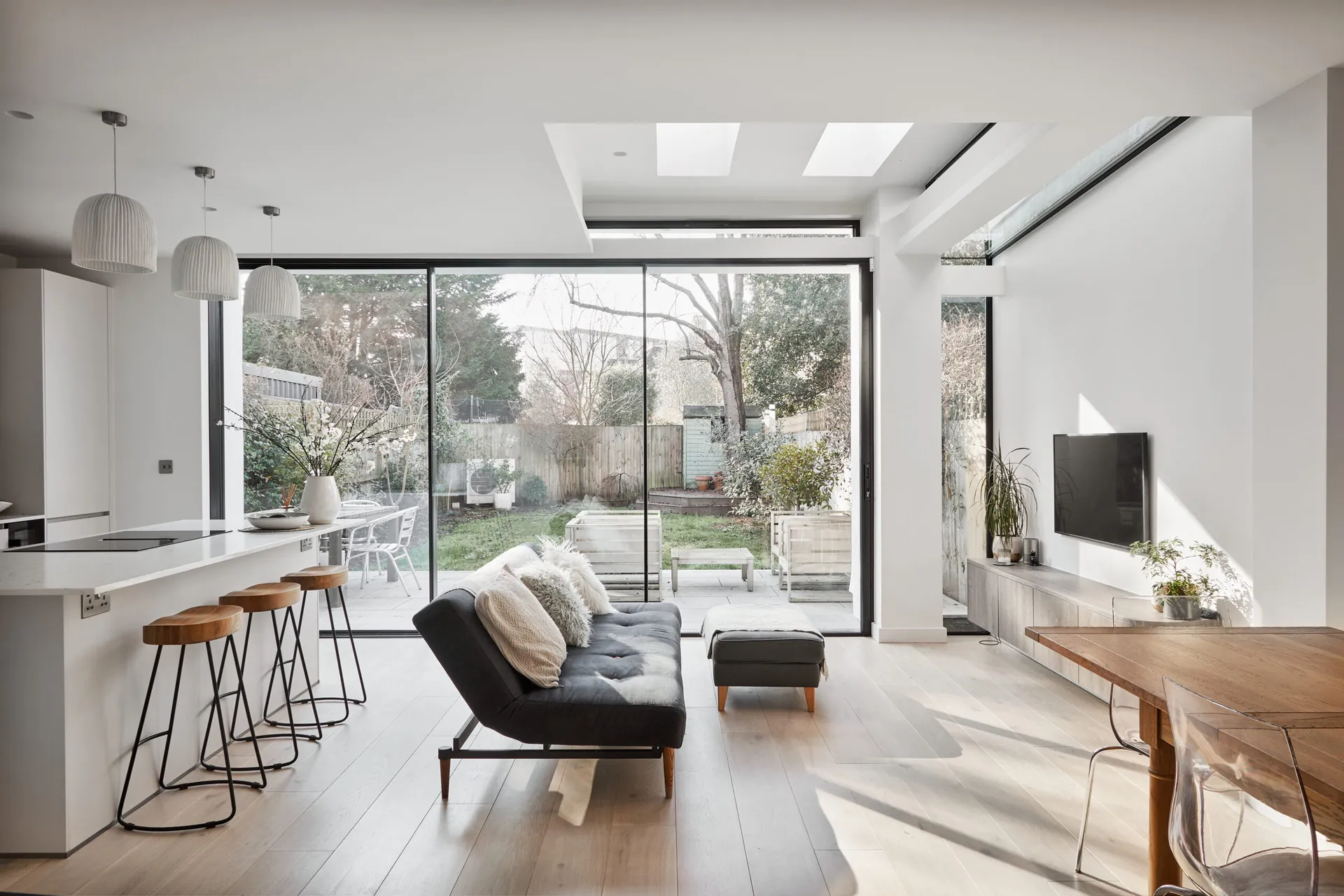Adjustable-rate mortgage vs. fixed-rate mortgage: Which one is better for you?
[ad_1]
Good day and welcome to Money Face-off, a MarketWatch column wherever we help you weigh monetary choices. Our columnist will give her verdict. Inform us whether or not you imagine she’s proper in the opinions. And make sure you share your solutions for future Financial Face-off columns.
It is tough out there for homebuyers. The median U.S. property price tag just broke the $400,000 mark for the to start with time at any time (it is at $407,600 to be specific, up 14.8% from a year back, according to the most current figures). On top rated of that, the cost of a 30-calendar year set level home loan has gotten considerably pricier much too, with charges soaring to 5.51%, up from 2.88% a calendar year ago.
Nevertheless there are indications the authentic estate industry is cooling, in competitive housing markets all-income presents and bidding wars had been popular right until not too long ago. Buyers are less than tension and they’re making all types of concessions to get into houses, such as skipping household inspections and waiving other contingencies.
Taking out an adjustable-fee home loan is one particular system buyers have been turning to in an try to (briefly) reduced their month to month housing payment. It is getting much more popular primarily in highly-priced housing markets these types of as San Francisco and San Jose, Calif, and Bridgeport, Conn., in accordance to CoreLogic.
Adjustable-amount home loans normally commence out with a lower-than-common curiosity fee, and then “adjust” to a larger or reduced fee (depending on where fluctuating, market-identified curiosity rates stand when the adjustment takes place, and other elements) following a set period of time. A 5/1 adjustable-fee mortgage loan (ARM), for case in point, changes its curiosity amount once a yr soon after five decades. Borrowers often take out an adjustable-fee property finance loan if they feel they’ll be advertising the residence right before the charge adjusts.
ARMs can be interesting because debtors will initially have a reduce month to month house loan payment than they would with a classic 30-year fastened-fee mortgage. Right now the introductory fee on a 5/1 ARM is 4.35% vs. 5.51% for the 30-year fastened.
So which one helps make improved perception, an adjustable-rate mortgage or a set-price mortgage?
Why it matters
“It’s amazing what folks never know about home loans,” suggests Ken Waltzer, principal and co-founder of KCS Wealth Advisory in Los Angeles. He stated he’ll inquire clients looking at ARMs about two key figures linked to their loan — the index and the margin — and he’ll get blank stares in response.
In addition to comprehending these figures, debtors contemplating about an ARM ought to 1st come across out how soon their payment could go up, and — possibly most importantly — regardless of whether they “will nevertheless be in a position to afford the month-to-month payment if the level and payment go up to the maximums authorized below the loan deal,” in accordance to the Shopper Fiscal Defense Bureau, a federal purchaser watchdog. (And try to remember that the mortgage payment is just a person piece of your complete housing charges there is also homeowner’s insurance policies and property taxes, and in some cases mortgage insurance and HOA expenses. Homeownership normally requires restore and repairs fees, also.)
“You just require to be cautious due to the fact there could possibly be intervals where by fees go super higher and you’re spending 10% for a yr or two,” Waltzer claimed. “You want to know if that is probable.”
You may well don’t forget adjustable-charge mortgages from the subprime foreclosure disaster that preceded the 2008 housing crash and Great Recession. ARMs were common with purchasers seeking to get a piece of the housing growth (which turned out to be a bubble). Lending specifications have been looser in those people times, top to situations where by loan companies permitted home loans for borrowers even if they couldn’t actually find the money for to fork out it off, gurus explained to MarketWatch. “Back in 2006, if you have been ready to fog your mirror, you could get a financial loan,” Waltzer said. “Now you really have to qualify.”
ARMs now are considerably less risky, many thanks in component to borrower protections set up by the Dodd-Frank Act, in accordance to Ricard Pochkhanawala, senior coverage counsel at the Middle for Dependable Lending. Dodd-Frank needed loan providers to entirely doc a borrower’s income and belongings and their potential to repay an ARM prior to the personal loan was manufactured, and it explained that borrowers should qualify for the personal loan based mostly on the thoroughly-indexed price, not the introductory or “teaser” curiosity charge.
Dodd-Frank was enacted extra than a ten years back, but I point out it due to the fact its protections are a worthwhile reminder that when it will come to using out a mortgage loan, it’s up to you, the borrower, to decide whether or not the mortgage is proper for you.
Just before getting out an ARM, debtors need to make guaranteed they entirely realize certain particulars such as any desire-charge caps or flooring. This info is in the loan’s promissory note, which, sadly, most people today really don’t browse, stated Sarah B. Mancini, a staff members lawyer at the Countrywide Purchaser Law Centre. If you’re a to start with-time consumer, take into account talking to a HUD-accredited housing counselor when you navigate this decision, Mancini instructed.
“It’s a crazy industry and I believe individuals are experience force to do points that are actually at the outside the house of what they can pay for and what they come to feel snug with, and which is not a excellent recipe for accomplishment in homeownership,” Mancini told MarketWatch.
“A good deal of people today who are involved in this approach have an incentive to press for the deal to go by, and so customers have to secure their own passions. The realtors and loan officers all get compensated a share of the price tag you pay for a household, so their incentive is not monetarily-aligned with indicating, ‘Go in with a decrease inquiring rate.’”
See also: Who can afford to pay for a property? Around 60% of the U.S. could be frozen out of starter properties, warns S&P
The verdict
If we’ve acquired everything from the pandemic, it’s that daily life is unpredictable, so is the overall economy and so are desire rates. My vote is to go with a fixed-charge home finance loan.
My causes
A fixed-rate house loan enables you to establish your all round economical system all-around a somewhat predictable month to month housing payment, when ARMs introduce fluctuation.
“It’s quick to be enticed with the lessen amount of the ARM and many men and women in all probability say, ‘What are the prospects that we are nonetheless in this home 10 a long time from now when the charge turns to variable?’ But this leaves the consumer exposed to fascination-amount threat that they may possibly regret down the highway,” said Ron Guay, a licensed economic planner at Rivermark Wealth Management in Sunnyvale, Calif.
“The set fee saves the trouble of monitoring the charge setting and would make your major line product expense a continual variety in a globe exactly where everything else is extra high priced up coming calendar year (i.e. inflation). You’re protected from charge will increase and if fees drop (adequate), you can refinance,” Guay explained.
He included, “Any argument for the ARM depends on some nonsense that men and women can foresee better prices coming and shift to a set fee just before they do, which is just one more type of current market timing (i.e. a loser’s activity).”
Is my verdict greatest for you?
On the other hand, an ARM can make perception if you’re arranging to provide your dwelling prior to the level adjusts and if you believe desire fees are headed down (this means that your financial loan will modify down). Some people are at ease generating those forms of bets, some others are not.
“If you really feel there is even a slight possibility you will remain in a dwelling lengthier than seven years or so, we generally do not suggest an adjustable-fee mortgage loan to clientele,” explained Christopher Lyman, a accredited money planner with Allied Financial Advisors, LLC in Newtown, Penn.
“We have experienced a couple of clientele in new months who are adamant they will be moving out of this household in the following few yrs so they acquire the ARM recognizing this will be the more cost-effective possibility if all goes to program, but the get worried we have for them is that everyday living throws curveballs when we least anticipate it and if they are stuck with this ARM and not able to refinance later on than they signed up for paying out drastically more in fascination in excess of the everyday living of the loan.”
Here’s an example of how this could enjoy out with a $440,000 financial loan, according to Lyman:
- A preset-rate 30-calendar year home finance loan at 5.5% would signify a $2,500 regular monthly payment and $460,000 of curiosity paid in excess of existence of bank loan.
- A 30-year ARM would be 4.75% now and then alter to 6.75% in 5 many years. Relocating ahead, the level can go up by a maximum of 1% a calendar year for the everyday living of the mortgage with a most desire rate of 7.7%. This indicates an first payment of $2,300 for every thirty day period and then $2,800 in 5 decades. In calendar year six, if it goes to the utmost charge of 7.7% the regular monthly payment would be $3,000 for each month. If we suppose the above scenario and in calendar year 6 the interest level stays at 7.7% for the relaxation of the mortgage, then the overall fascination paid out in excess of the daily life of the loan is $600,000.
Inform us in the reviews which possibility should win in this Economic Confront-off. If you have ideas for long run Monetary Experience-off columns, ship me an e-mail.
Understand how to shake up your financial routine at the Ideal New Suggestions in Cash Pageant on Sept. 21 and Sept. 22 in New York. Join Carrie Schwab, president of the Charles Schwab Basis.
[ad_2]
Supply connection







